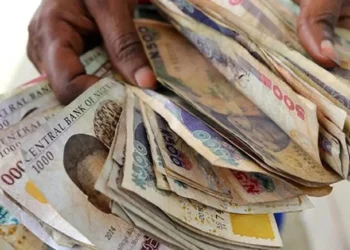Following the relaxation of currency redesign and cashless measures by the Central Bank of Nigeria (CBN), indications suggest that Nigerians have resumed cash hoarding. Recent findings show a significant increase in currency outside banks (COB), reaching N2.08 trillion. This surge comes after monetary measures implemented by the CBN had initially helped reduce the amount of cash held outside the banking system. As the government halted these measures, COB decreased to N1.45 trillion by March. However, the latest data reveals a sharp rise of 43 percent in COB to N2.08 trillion in April, indicating a concerning trend of cash hoarding.
Policy Reversal and Cash-in-Circulation:
In December of the previous year, the CBN introduced redesigned N200, N500, and N1,000 notes, setting January 31st as the deadline for the old notes to cease being legal tender. The objective of the policy was to mop up currency outside banks, which stood at N2.83 trillion in October when the redesign announcement was made. Within five months, the CBN successfully reduced COB by 135 percent to N843.3 billion in February. Currency-in-circulation (CIC) also decreased by 235 percent to N982 billion during the same period. However, a Supreme Court ruling in March extended the legal tender status of the old notes until December 31st, 2023, leading to a significant rise in both COB and CIC.
Concerns and Calls for Action:
The resurgence of cash hoarding raises concerns among experts in the security industry. As the incoming government of President-elect Bola Tinubu prepares to take office, they emphasize the need to focus on industrializing the country and deliberate on strengthening the security architecture. Cash hoarding can have adverse effects on the economy, including reduced circulation of money within the formal banking system and potential challenges in monetary policy implementation. Additionally, the security implications of increased cash outside the banking system warrant attention, as it can be associated with illicit activities and undermine efforts to combat financial crimes.
Bottom line
The recent surge in currency outside banks in Nigeria highlights the resumption of cash hoarding following the relaxation of currency redesign and cashless measures. While the initial policy aimed to reduce COB and enhance monetary stability, the reversal has led to a significant increase in cash held outside the banking system. As the incoming government takes charge, it is crucial to prioritize efforts to industrialize the country and address security concerns. By promoting economic development and strengthening the security architecture, Nigeria can work towards a more robust financial system and a safer society.










